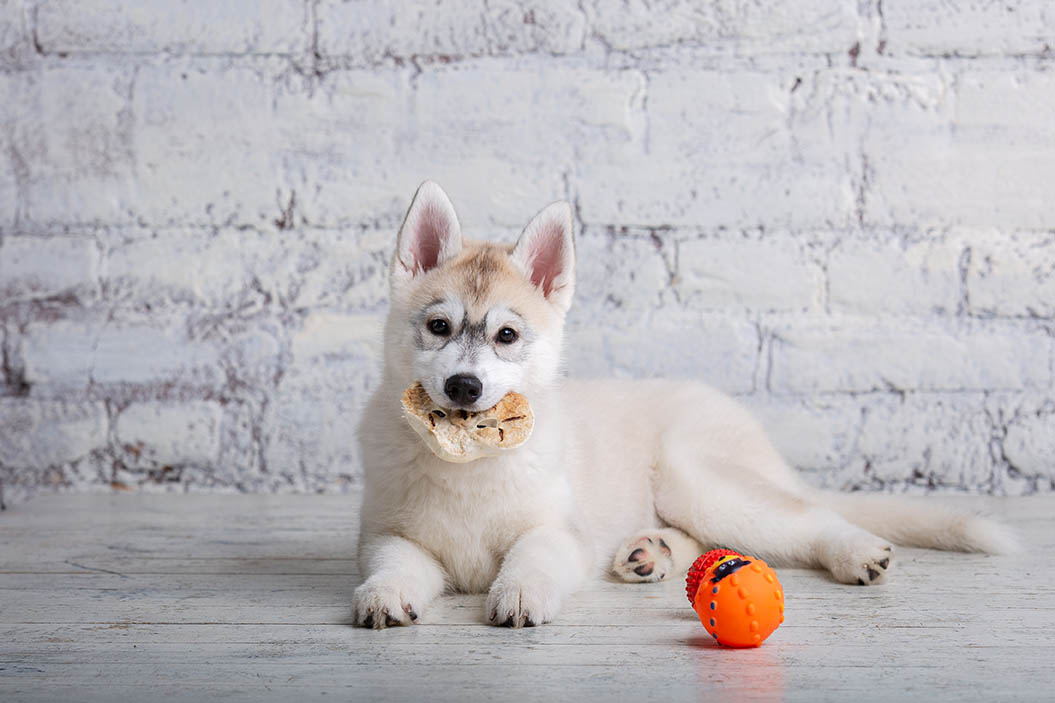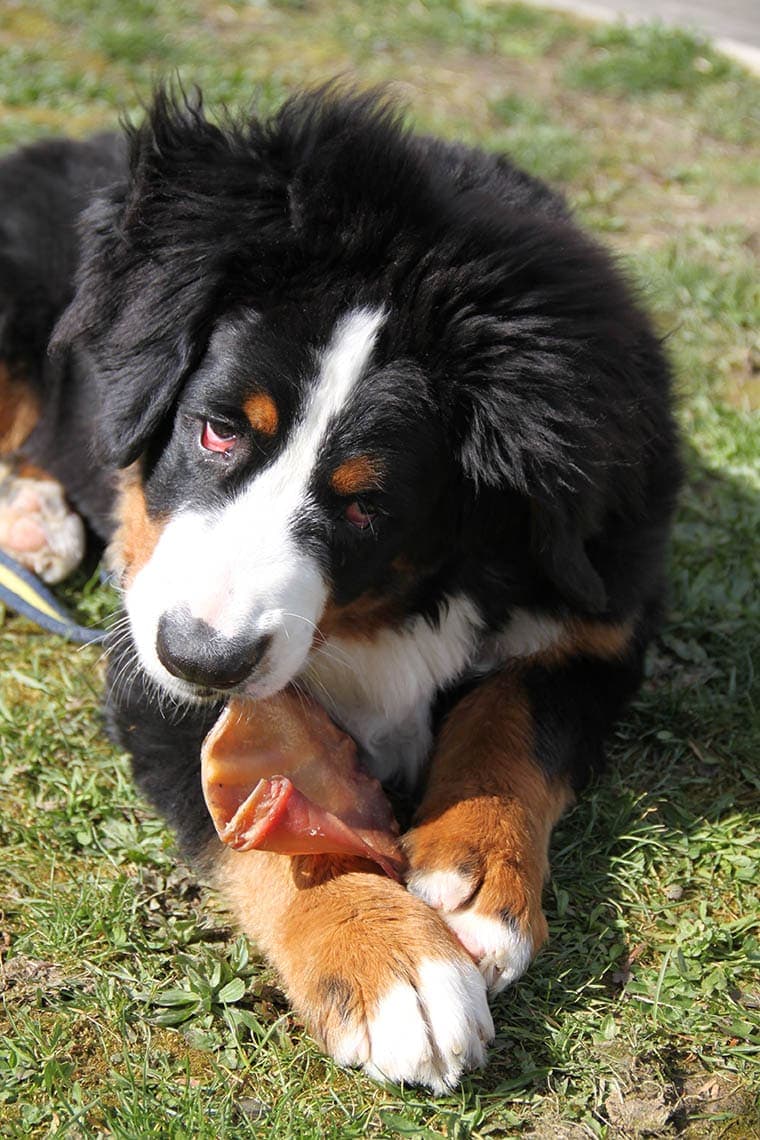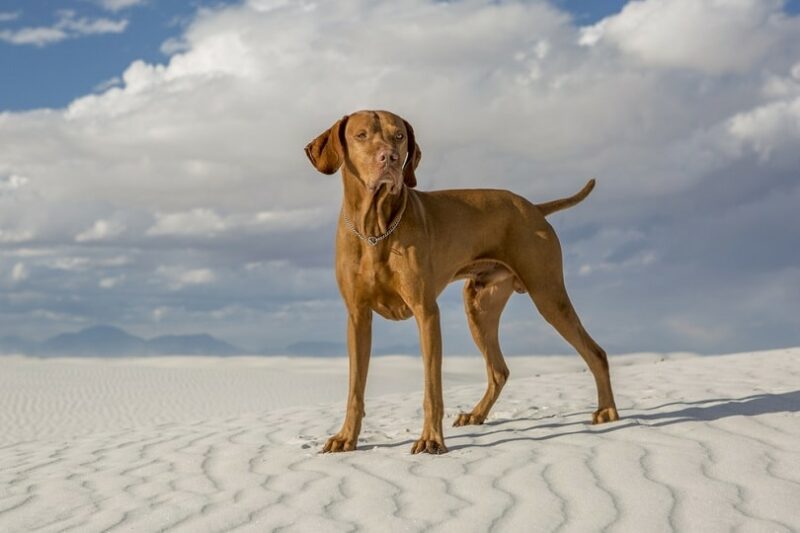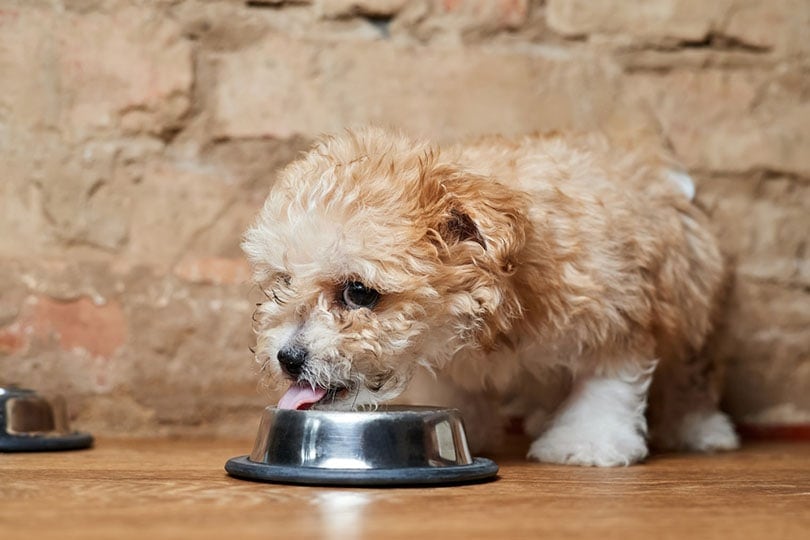Are Pig and Cow Ears Good for Dogs? Vet-Reviewed Safety Guide
By Dean Eby
Updated on

Pet care is changing. People are becoming more aware of how things affect their pets’ health, allowing them to make informed choices and seek advice from their vets to keep their dogs in better health. As such, many treats that have always been provided for pooches without much thought have come under scrutiny.
If you’re concerned about the effects of offering your dog treats like pig and cow ears, then you’re just being a responsible pet parent. Pig and cow ears can be safe chews for some dogs if you take certain precautions, but there are health risks to be aware of. The CDC and FDA have advised the general public to avoid handling and giving pig ears to dogs due to previous Salmonella outbreaks. There are several important things to be aware of if deciding to offer this type of treat to your canine companion, which we’ll explore below.
Are Pig and Cow Ears Safe for Dogs?
If taking the right precautions and minimizing certain health risks, pig and cow ears can be safe treats for some dogs, depending on their chewing habits. They’re made up mostly of cartilage, which has been dried and dehydrated, is generally softer than other types of chews, and won’t splinter like bones can. Some pig and cow ears are an entirely natural treat, but not all of them are, so you’ll need to be very particular about which pig and cow ears you choose to purchase.
However, there are several things you need to be aware of. First is the presence of bacteria on the pig ears due to the way they are manufactured and processed. In 2019, the CDC reported a multistate outbreak of Salmonella due to pig ear dog treats, with the risk of making both the dog and their owner sick. This shows that food of animal origin always carries a risk of bacterial contamination and needs to be sourced from a verified supplier.
Even then, usual hygiene measures need to be taken. There is no way to protect your dog from Salmonella, unless you decide not to give them pig ears at all. Make sure you always wash your hands thoroughly after handling your dog’s food, particularly animal byproducts such as ear chews.
Another issue is the chew appropriateness for various dog breeds and sizes. A chew that is too small or one that easily fits whole in your dog’s mouth presents a risk for choking and further serious digestive issues. If the chew is hard, it may be difficult for miniature and small dogs to chew on, and they could damage their teeth or gums in the process. Large dogs that love their food a little bit too much or are powerful chewers may try to swallow a large chunk, which can lead to choking and may block their airway or cause a stomach or intestinal blockage. All of these need urgent veterinary attention.
You should always supervise your pooch when eating chews that may cause such issues, particularly when offering them for the first time. For dogs that like to swallow and easily break off bigger pieces, you should remove the pieces promptly and take away the chew when they get toward the end. Finally, cow and pig ears can cause a stomach upset in some dogs.
In all reality, dogs are dogs, meaning for some, no chew is safe enough. But in other cases, considering these risks, particularly in dogs that are slow chewers and don’t tend to break off and swallow pieces of the chew, both cows’ and pigs’ ears can be a tasty occasional treat with continuous supervision.

Are They Beneficial for Dogs?
Many treats that we offer our dogs are safe but may provide only limited or minimal benefits for our pets, as they are not a replacement for a balanced and complete diet. Pig and cow ears can be beneficial for some dogs, but only when offered in moderation while keeping in mind all the potential health risks we discussed.. As mentioned, pig and cow ears are mostly made up of soft cartilage, which can be great for some dogs to chew on.
While your dog chews, the cartilage may help reduce tartar and plaque build up on your dog’s teeth. However, this is not a replacement for regular brushing and can only be a little bonus when it comes to your pooch’s dental health.
Cartilage contains chondroitin, which may provide some benefits for joint health, although research findings are still divided when it comes to this claim.
Aside from possibly helping your dog’s teeth stay clean, cow and pig ears may provide some beneficial nutrients, depending on your dog’s age, health, and activity level. These treats can be moderate to high in fat, with some ranging from 15% onwards, and high in protein. Most cow ears are only 1%-3% fat and between 66%-90% protein.
Still, there are plenty of calories in a cow or pig ear, so be sure not to offer it to your dog too often, or it could lead to a stomach upset or pose a risk of making your dog overweight with time. Treats should not make more than 10% of your dog’s daily food intake, and pig and cow ears are not suitable to be offered every day but merely once a week or so.
How to Choose the Right Pig & Cow Ears
One of the important things to consider when feeding your dog pig and cow ears is how the treat is made. Even though ears are natural, not all of them on the market are made the same. Many of them are processed and altered, which means you’re no longer offering your dog an entirely natural treat.
Check the list of ingredients so that you know they’re not heavily processed or coated, which can lead to a stomach upset. In processed ears, some of the nutritional benefits that your dog could be receiving will be reduced, or the product may have been chemically treated in order to be preserved for longer, which could cause digestive issues in your dog.
It’s also very important to choose the right chew size for your dog, as too large or too small chew may cause issues. A chew that is too small and fits in your dog’s mouth may be swallowed immediately rather than being chewed, leading to choking or digestive problems. A very large chew for a miniature dog may be too difficult for them to chew on and could lead to mouth injuries if very hard.
How to Reduce Some of the Risks Associated With Pig and Cow Ears
Some dogs might not do as well with ears as other dogs. For these canines, pig or cow ears might cause diarrhea. For this reason, it’s best to offer your dog a single ear chew and see how they do. Usually, diarrhea only occurs in dogs that have eaten too many cow or pig ears or other treats, or if they’ve never had one before. For the most part, cow and pig ears are well tolerated by most dogs.
Choking is also a possible hazard of cow or pig ears. Because they’re made up of cartilage, they’re not too hard, but they are hard enough to potentially cause choking in your dog if they try to swallow a large piece. This is especially true when your dog gets to the end of the ear, which can easily fit whole in their mouth. That last little chunk is very susceptible to being swallowed rather than chewed through. If your dog tries to swallow it whole, the chunk might become lodged in your dog’s throat. To avoid this, always take the last little bit away before your dog has the chance to choke on it.
If your dog swallows a large chunk of the ear, monitor them for signs of vomiting, drooling, reduced appetite, abdominal pain, diarrhea or straining when defecating, as they may develop a gastrointestinal blockage that requires veterinary assistance.
The risk of bacterial contamination with Salmonella is not something you can easily avoid, unless you decide not to purchase any pig ears and focus on other types of chews. For powerful chewers, it may be hard to find a chew that they can’t destroy too quickly or swallow chunks of, and it’s crucial that you always supervise your dog while chewing, as in reality, every chew can pose a certain health risk.
Conclusion
Many dog treats are far less healthy than we’d like, and it’s important to be aware of the potential issues surrounding them. In today’s health-conscious society, many people are considering healthier alternatives and giving more thought to the treats they’re offering their canines.
Cow and pig ears have long been given to dogs without much thought. Luckily, these treats are still generally safe to give to most dogs, but there are certain precautions and health risks to be aware of. Depending on the size of the chew, dog size, and their chewing habits, there may be a risk of choking when the chew becomes small enough to fit whole in their mouth, or it may lead to a stomach upset or a blockage. Pig ears are also notorious for being contaminated with Salmonella, which can endanger the health of your pet as well as yours.
Some dogs will have pig and cow ears without experiencing any issues whatsoever, but others may develop certain health problems, so make sure you are supervising your dog while chewing so accidental swallowing of larger pieces can be avoided. If you want to play it safe, consider other natural treats that may be more appropriate for your pooch.
- Related Read: Best Dental Chews for Dogs – Reviews & Top Picks
Featured Image Credit: fotoliza, Shutterstock














